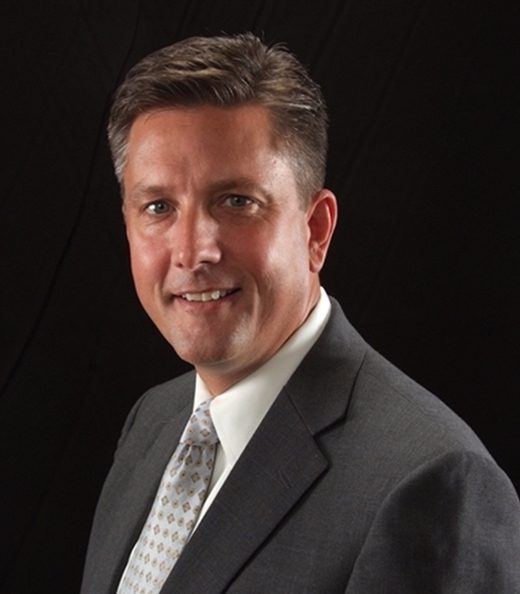
Attain, LLC Managing Director Todd Morris is a Pinnacle Awards finalist in the National Security Executive of the Year category. Here, he shares what makes him stand out among the competition, which rules he should break more and what’s made him successful.
What has made you successful in your current role?
Morris: Government contracting, especially in the national security marketplace, is a uniquely complex business. As such, there are many success factors that span the spectrum from communication skills and leadership abilities to subject matter expertise.
Two success factors stand out to me after nearly 30 years in this field. The first comes from the recognition that our clients’ first and primary mission is keeping our nation safe, preparing for and responding to threats and thwarting our adversaries. In every engagement, regardless of the four corners of our contract and the specific technology or service we may be providing, I work to understand my client’s true end-goal, whether it’s, for example, securing our airspace at the Transportation Security Administration or enabling our warfighters at the Defense Information Systems Agency. I learn how my work advances those primary mission objectives. Being able to articulate how our services fit in with that larger context creates the environment for true partnership with our clients, and both business and mission success.
The second success factor I would note is part of the “blocking and tackling” of business leadership: taking the time to ensure organizational alignment. Alignment starts with developing and communicating my team’s strategic business objectives and our vision for the future, and then ensuring that at every opportunity — whether it’s an all-hands meeting, a group lunch, or even a few minutes alone with a PM or technical lead before a meeting — I take time to talk about the plan, reinforce how we are achieving our vision, and refine our strategy through feedback and discussion.
This “alignment time” comes instinctively to me at this point in my career, though as a trained computer engineer, it did not come easy to me. But the payoff is huge, especially when invariably there are changes to the organization or to the client and we have to move and adapt everyone’s thinking to respond to changes in the environment.
What makes you stand out from your industry counterparts?
Morris: To the degree that I have enjoyed success in business, all credit goes to the talented, motivated and, many times, brilliant people I have had the privilege to recruit and lead on my teams. To recognize and find those people, and to lead them effectively, I developed the skills, vocabulary, tools and understanding needed to articulate a vision, develop a strategy, and then translate that strategy into concrete business activity. That might come across as process-oriented, but it is really a creative process, one that requires equal parts understanding, inspiration and motivation.
How do you help shape the next generation of GovCon leaders?
Morris: I learned national security consulting from some truly exceptional leaders. All of them took time aside from the day-to-day, week-to-week tasks at hand to teach me about the business of government contracting. The best of those leaders “threw me into the breach” at every opportunity, whether I felt I was ready for it or not. I use every moment I can with my team as a teaching moment. They probably do not realize it, but I use every decision, every crisis, every success and every failure to explore our understanding of our clients and our business, and to shape my team. And like my mentors, I am eager to push folks out of their comfort zone, but with the confidence that they have the support and the resources to be successful.
Which rules do you think you should break more as a leader?
Morris: Every organization is a bureaucracy, and bureaucracies are defined by their rules. From my experience, organizational transformation is not possible without breaking some rules. Some of the most satisfying business successes I have been a part of involve true organizational transformation, sometimes for the company I worked for, but more often for the clients that I support. Rule-breaking comes with the territory. Rule-breaking behavior has to be bounded, though, by strong, shared values, values that set a high standard for ethics, integrity and transparency. Establishing and maintaining those standards is one of the toughest challenges in business. But once you set that bar, you can be a true change agent.
What’s one key thing you learned from a failure you had?
Morris: Government contracting is a humbling business, and I have had many opportunities to learn from failure. In fact, if there is one silver lining to the incredibly long timeframes involved in government procurement, it is that losing a competition often occurs months, if not years, from the 80-hour weeks you put in on the proposal. A couple of lessons stand out to me though:
First, accept as much of the blame from a failure, personally, as is reasonably possible. As a leader “own” the defeat. Own the numbers if you had a bad quarter, or the resignations or whatever the failure might be. It seems counterintuitive to some, but people, especially the good ones in our business, have an instinctive appreciation for accountability. The humility and transparency you communicate from failure will go a long way to inspiring your team the next time you face a challenge with uncertain results.
The second lesson, easier to describe but harder in practice to follow, is to maintain a genuinely positive attitude, even in — maybe especially in — defeat or failure. Now, nobody likes a Pollyanna. So the challenge is to examine the failure and pull the nuggets of learning or camaraderie or incremental achievement out of the experience in a meaningful way.

